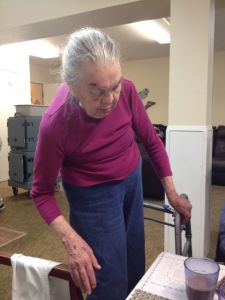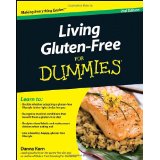
by Diane Masson | Jun 14, 2015

UN-ENGAGED EMPLOYEES HAVE CRACKS THAT NEED REPAIR!
Is there a crack in your armor? Are you living on empty and have nothing left to give your family or job? Maybe you are a full-or part-time caregiver for an aging parent or a senior with dementia? Perhaps you are in a senior living sales slump?
You can’t help anyone else or be productive at work unless you take care of yourself first. Look for joy in the moments. You may be going through a dire time. Maybe your parent or one of your senior patients is dying. Perhaps your daughter or son has some kind of health or school trauma. Possibly you just learned that someone scheduled to move into your retirement community has changed his or her mind. It may have been the one you needed to hit your sales goal this month. Sigh…they are going to stay home and wait for a crisis. You start asking why over and over.
Don’t become jaded and harden yourself with a giant wall to protect your emotions. It’s mentally checking out and called un-engagement. Your family, senior prospective residents and coworkers can feel your wall.
If you work in senior living sales, we can’t help every senior. Only the ones who choose to plan ahead. Do you feel overwhelmed with what’s happening in your personal life? Is your lack of sales getting you down? Well it’s time to go find your rainbow. Are you wondering how to get started? Feed your mind with positive thoughts. Schedule time to heal yourself!
10 Recharging Tips:
- Go to a live concert, stand in your shower or drive down the road singing at the top of your lungs.
- Sit by the ocean and wiggle your toes in the sand.
- Fly down the road with the wind in your face on a bike or motorcycle.
- Hold a baby or play with small children.
- Take a Saturday to read a book.
- Hang out with your friends.
- Spend time in nature – amongst the trees, watching the river go by or gazing at a lake.
- Soak in a bubble bath surrounded by candles.
- Go to a sports game in person. Cheer on your favorite team.
- Build a fire and make s’mores!
Recharge today, so you can change your world one senior or family member at a time.
Let your family and job see your heart when you speak. They will be moved and feel your sincerity. Seniors can tell if you want what’s best for them. Suddenly seniors who were “not ready yet” become ready to move into your retirement community. Conviction in your voice can move a mountain.
Shake off the negative. Don’t focus on the junk. I created a spiritual foundation of faith that can sustain me when I have a tough day. You can too. We all have moments of weakness. Believe in your ability to change a senior’s or family member’s life today.
In every encounter with family or at work, we either give life or drain it.
Do you give life to those around you at work and at home? Are you so worn out from working that you have nothing left to give your family? It’s your choice to be a giver or taker to those around you. Have you taken time to recharge yourself recently?
Exciting news! Diane’s CCRC teams are breaking records and hitting aggressive occupancy goals this quarter. They all participate in a weekly book review led by Diane. The book review helps the teams stay on track, improve sales skills and build team camaraderie. They just completed learning the 12 keys in Senior Housing Marketing: How to Increase Your Occupancy and Stay Full for senior living professionals. It was written by Diane Twohy Masson.
Credit to Gallop: Only 30.5% of employees are engaged at work.
Everyone of us knows at least one senior that needs to move now. Here is a resource to help you or them make an informed decision. Diane Twohy Masson’s new guide book for seniors, “Your Senior Housing Options,” is available on Amazon.com with a 5-star rating. It reveals a proactive approach to navigating the complex maze of senior housing options. It will help you understand the costs and consequences of planning ahead or waiting too long. Learn firsthand tips from someone who is currently advocating for two aging parents.
Among the thousands of seniors she and her teams have assisted in finding the right senior living community, the most difficult case has been helping her own parent. Masson spent two years exploring senior housing options with her mother before finding the ideal Continuing Care Retirement Community for her. After eight years in this independent living setting, she helped her mother transition into an assisted living community. Seven years later, even as a senior housing expert, Masson struggled with the decision to move her mother into a skilled nursing community.
More related articles by Diane can be found at Tips2Seniors.com or like Tips 2 Seniors on Facebook.

by Diane Masson | May 31, 2015

Will the POA understand new shoes are needed?
It’s hard to be an advocate for a senior for years on end. I advocated for my own mom (with vascular dementia) for over 10 years, until I recently lost her. Advocacy is not an easy job and it can entail sleepless nights of concern.
It’s vital to select a Power of Attorney (POA) who currently knows you well enough. If you can no longer speak on your own behalf, your POA needs to know if you are over medicated or sedated just by looking at you. They need to know your baseline so they can help you and reverse the issue or accelerate an outcome in a timely fashion.
The POA’s main purpose is to comply with your wishes that were indicated before you became incapacitated. They should always protect your best interests both mentally and physically.
Over medication is a growing problem for seniors. I have heard many stories of hospitals overmedicating seniors. My own mother-in-law was over sedated in the emergency room. She has Alzheimer’s. They had no room in the psych ward and she was drug restrained for three days and two nights in the emergency room. Sigh…
It has taken us four months to get my mother-in-law off Haldol. Psychotropic drugs and dementia do not mix well. Her POA thought the doctors understood what they were doing tapering off the medication. Unfortunately, my mother-in-law’s doctor admitted to knowing nothing about psychotropic drugs and was relying on others to advise her. Gulp… What a mess! We are talking about seniors’ lives…
Neither the doctor nor the POA knew what to do about my mother-in-law’s medications or where to begin. It literally required a family member taking my mother-in-law to her doctor and demanding, in person, for the Haldol to terminate immediately. The doctor could see for herself the sedation instead of relying on the input from home health professionals. The weird part was the doctor agreed to terminate the Haldol in three days. We wondered why wait three days? It turned out she wanted a psych nurse to visit my mother-in-law while she was still on the Haldol. The psych nurse agreed to terminate the Haldol too. Here is the horrible part; the psych nurse ordered a different psychotropic drug on an as needed basis. What?? It took the family helping the POA another week to reverse that fiasco.
Why are doctors prescribing psychotropic drugs to seniors with dementia in the first place?
A POA needs to be vigilant. It may require educating themselves about medications that they no nothing about. Very few POA’s are doctors and nurses. If you are the parent of a doctor or nurse who will be your POA, then congratulations are in order for you.
What about a senior with neuropathy in his or her feet? Something as simple as buying quality shoes, so a senior has better balance is key. Will the POA do it?
What if your POA is an attorney or an absentee POA relative who rarely visits, how can they understand or advocate for your needs?
A POA needs to be willing to speak to the doctor on your behalf. Some possible POA’s are very direct (speak their mind) and others are indirect (prefer to fade into the background). Some folks are introverted and others are extroverted. Who are you asking to be your POA? Will they get the job done? This is not a position for sissies. Your POA needs to be hardcore if you are in dire need. Your POA may have to spend relentless hours pursuing a medication result that is beneficial for your needs.
What have you encountered? Who have you selected to be your POA? Do you feel good about your decision?
Don’t wait until you’re in a health care crisis like author Diane Masson’s in-laws. It has been a nightmare for her in-laws and all the adult children. Research your future choices NOW to avoid being “put” somewhere, or having decisions made for you by others. “Your Senior Housing Options” is a new resource book available on Amazon.com with a 5-star rating. It offers a step-by-step guide to the options, including staying home.
Seniors, Boomer children, spouses, family members and caregivers are desperate to learn how to truly differentiate good senior housing from mediocre at best. Diane Masson’s new book will answer these heart-wrenching issues in an easy, simple, story telling format with humorous illustrations.
Diane has worked in senior housing for 17 years and is the regional marketing director for two debt-free Continuing Care Retirement Communities in Southern CA (Freedom Village in Lake Forest and The Village in Hemet). Her first book “Senior Housing Marketing – How to Increase Your Occupancy and Stay Full,” is being utilized by senior housing professionals across the country.
For weekly tips and advice go to www.Tips2Seniors.com and learn more from author and senior housing expert Diane Twohy Masson.

by Diane Masson | May 10, 2015

Comatose in Memory Care
My mother-in-law who got over drugged in the hospital several months ago is now in her second memory care community in Seattle. The first high-end memory care community in downtown Seattle wanted to follow the doctor’s recommendations of sedation. It took me three days to get the drugs reduced by half after I saw my overmedicated mother-in-law. Then the second memory care community promised our family that they would get her off the reduced Haldol dose. We believed them and paid a hefty community fee (a one time move-in fee) Sigh…
It’s been almost two months in the second Memory care.
We had an unproductive care conference about two weeks ago. When the family talked about changing the psych drugs the conversation led to considering Amy as a candidate for hospice because she was not eating. What? It turns out one of the drugs she began in the hospital was also an appetite suppressant.
She was overmedicated in the hospital because there were no rooms in the psych ward, so my mother-in-law stayed in the emergency room for three days and two nights. Getting the picture of sedation now?
My sister-in-law is on the warpath. She is demanding changes for her mom and talking about moving her to a third place. Will it help?
The second memory care called my husband to see if they could save the move out. He simple said, “You have known that the family wanted my mom off the Haldol. How many phone calls and faxes have you made to the doctor to make that happen?” The administrator started to back pedal.
My sister-in-law took my mother-in-law to her doctor yesterday. A 15-minute appointment turned into nearly hours. The doctor is going to take her off the Haldol but does not have a clue what medications will help or are necessary. My mother-in-law has significant dementia, and seemed to have had a psychotic break when she lost her home of 50 years and her husband within a week.
Why is it so hard to unsedate a senior who cannot speak on his or her own behalf? Is it easier for the memory care staff if the residents are half sedated? Can anyone help us on how to turn this around? Any tips on psychotropic drugs? Which ones are best?
Don’t wait until you’re in a health care crisis like author Diane Masson’s in-laws. It has been a nightmare for her in-laws and all the adult children. Learn how to plan ahead like Masson’s mom. Research your future choices NOW to avoid being “put” somewhere, or having decisions made for you by others. “Your Senior Housing Options” is a new resource book available on Amazon.com with a 5-star rating. It offers a step-by-step guide to the options, including staying home.
Seniors, Boomer children, spouses, family members and caregivers are desperate to learn how to truly differentiate good senior housing from mediocre at best. Diane Masson’s new book will answer these heart-wrenching issues in an easy, simple, story telling format with humorous illustrations.
Diane has worked in senior housing for 17 years and is the regional marketing director for two debt-free Continuing Care Retirement Communities in Southern CA (Freedom Village in Lake Forest and The Village in Hemet). Her first book “Senior Housing Marketing – How to Increase Your Occupancy and Stay Full,” is being utilized by senior housing professionals across the country.
For weekly tips and advice go to www.Tips2Seniors.com and learn more from author and senior housing expert Diane Twohy Masson.

by Diane Masson | Sep 28, 2014
 Are you hearing about more and more seniors who are either vegetarians or need a gluten-free diet? How are your chefs and dining directors accommodating these new dietary restrictions at your senior living communities? Do these diet-restricted seniors have more than one choice for lunch and dinner at your retirement community? Or are they stuck with the salad of the day or a vegetable plate?
Are you hearing about more and more seniors who are either vegetarians or need a gluten-free diet? How are your chefs and dining directors accommodating these new dietary restrictions at your senior living communities? Do these diet-restricted seniors have more than one choice for lunch and dinner at your retirement community? Or are they stuck with the salad of the day or a vegetable plate?
Let’s hear what is happening in our senior living industry on a nationwide basis. Join the conversation at the bottom of this blog.
Younger seniors want choices. My Continuing Care Retirement Communities offer 14 entrees, which include vegetarian and gluten-free options. The culinary and serving teams have been trained to accommodate five gluten-free residents at one community. There can be no mishap because a gluten-free senior can get deathly ill if even a crumb of gluten is on their portion of food.
Soups that used to be made with a flour-based rue have been replaced with gluten-free options. A gluten-free pasta dish is always one of the 14 entrees. New gluten-free rolls and deserts are available now.
What are you doing to accommodate seniors with dietary restrictions? Have you had to expand beyond the standard three entrees a night? Please share what dietary changes you have made at your senior living community.
Photo credit: Living Gluten-Free for Dummies
Diane Twohy Masson writes this weekly blog to support and engage with other senior housing professionals. Her first book is Senior Housing Marketing – How To Increase Your Occupancy and Stay Full. Many sales teams and organizations have used the 12 keys contained in this book for their weekly book review. Diane is working on her second book to help seniors select their senior housing options. Masson enjoys setting move-in records as the regional marketing director of two debt-free Continuing Care Retirement Communities in Southern California – Freedom Village in Lake Forest and The Village in Hemet, California.
© Marketing 2 Seniors| Diane Twohy Masson 2014 All Rights Reserved. No part of this blog post may be reproduced, copied, modified or adapted, without the prior written consent of the author, unless otherwise indicated for stand-alone materials. You may share this website and or it’s content by any of the following means: 1. Using any of the share icons at the bottom of each page. 2. Providing a back-link or the URL of the content you wish to disseminate. 3. You may quote extracts from the website with attribution to Diane Masson CASP and link https://www.marketing2seniors.net For any other mode of sharing, please contact the author Diane Masson.

by Diane Masson | Aug 31, 2014
 Some senior living sales people are so focused on getting a deposit that they miss crucial buyer signs from a senior living prospect. One easy tip for you to start using today is to never answer an easy question that a senior or adult child asks with a simple, “yes” or “no.” Instead, respond with a clarifying question and discover more about his or her mindset.
Some senior living sales people are so focused on getting a deposit that they miss crucial buyer signs from a senior living prospect. One easy tip for you to start using today is to never answer an easy question that a senior or adult child asks with a simple, “yes” or “no.” Instead, respond with a clarifying question and discover more about his or her mindset.
The following is an excerpt from my book, “Senior Housing Marketing – How To Increase Your Occupancy and Stay Full.”
For example, if they ask, “Is this apartment available?” You ask, “What is your time frame for moving in?” The answer given is very telling. They might say, “Well, I have to sell my home first.” This indicates they want to buy it! You just have to walk them through the steps on how to make it a reality.
More Buying Questions
- Asking about availability of a certain apartment.
- What is the time frame required to move into this apartment?
- They want something repeated.
- Wanting to know about rates, price, or affordability.
- Asking about the quality or levels of health care that are offered is a great sign.
- Wanting to see the model apartment.
- Asking what the other residents are like.
- Comparing your senior living community with the competition. This means they are doing their homework and are interested.
Start recognizing closing questions that they may ask you. The questions can come in the beginning, the middle, or the end of your senior living tour. When they ask you a question, never answer with a simple “yes “or “no.” It’s good to answer with a clarifying question that allows more discoveries as to their needs or wants. Your strategic question can often turn into an early close and result in the sale.
They may say, “How much money would I have to put down to hold it?” This is not a sale until you walk them through all the steps. But it’s darned close!
Have your senior living occupancy start increasing today!
Please share your strategies, successes, failures or comment below to join the conversation and interact with other senior living professionals on what is currently being effective to increase occupancy on a nationwide basis.
Diane Twohy Masson is the author of “Senior Housing Marketing – How to Increase Your Occupancy and Stay Full,” available at Amazon.com with a 5-star rating. The book is required reading at George Mason University as a part of its marketing curriculum. Within this book, the author developed a sales & marketing method with 12 keys to help senior living providers increase their occupancy. Masson developed this expertise as a marketing consultant, sought-after blogger for senior housing and a regional marketing director of continuing care retirement communities in several markets. She has also been a corporate director of sales and a mystery shopper for independent living, assisted living, memory care and skilled care nursing communities in multiple states. Currently, Masson is setting move-in records as the regional marketing director of two debt-free Continuing Care Retirement Communities in Southern California – Freedom Village in Lake Forest and The Village in Hemet, California. Interestingly, this career started when she was looking for a place for her own mom and helped her loved one transition through three levels of care.
© Marketing 2 Seniors| Diane Twohy Masson 2014 All Rights Reserved. No part of this blog post may be reproduced, copied, modified or adapted, without the prior written consent of the author, unless otherwise indicated for stand-alone materials. You may share this website and or it’s content by any of the following means: 1. Using any of the share icons at the bottom of each page. 2. Providing a back-link or the URL of the content you wish to disseminate. 3. You may quote extracts from the website with attribution to Diane Masson CASP and link https://www.marketing2seniors.net For any other mode of sharing, please contact the author Diane Masson.





